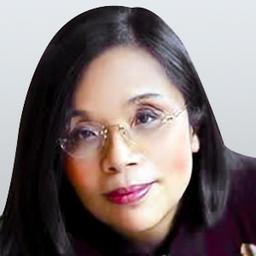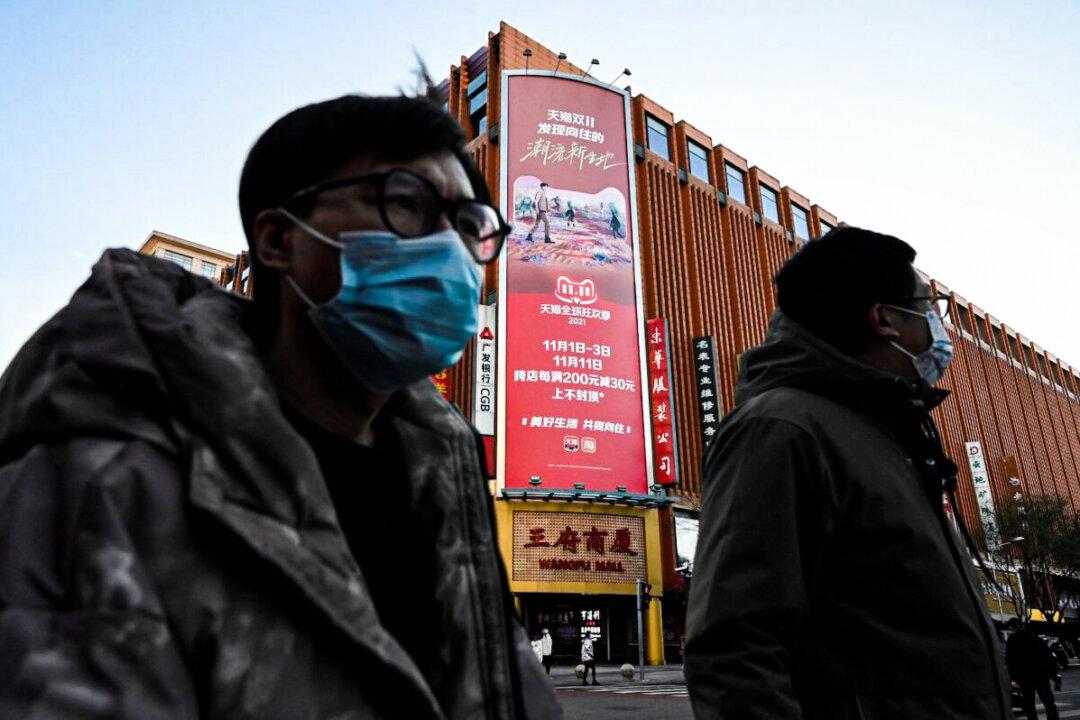On April 25, the French ambassador to Beijing awarded the Légion d'Honneur to Mr. Long Xinming, the Director-General of the General Administration of Press and Publication (GAPP). The award has drawn criticism from quite a few media outlets in France. One TV station went so far as to call it “a great mistake.”
This behavior is even worse than what the UN did in 2003. In December, 2003 the United Nations Commission on Human Rights (UNCHR) presented Deng Pufang with the UN Human Rights Award. Being in charge of the China Disabled Persons’ Federation, Deng Pufang was at least involved in improving the conditions of China’s human rights. The main reason for the international community’s criticism of the UNCHR for granting this award was that the award symbolized recognition of China’s efforts to improve its human rights conditions as well as Deng’s political background. Deng Pufang is the son of Deng Xiaoping, former CCP leader and main organizer of the 1989 Tiananmen Massacre. While France has been hailed as a country founded on human rights principles, the French government supposedly presented Long Xinming with such an honor in recognition of his deeds within his term of office. The honor was supposed to praise Long for basing his deeds on human rights principles upheld by the French government. However, the reason why Long could win the French government’s recognition is solely because of his political role. Long plays an open political role as head of the thought police and a chamberlain who manages people’s ideology. Therefore, this time the French government behaved in a manner quite different from the traditionally recognized understandings of political correctness.
Reviewing Long Xinming’s work history, we find that before he was elected as Director-General of the GAPP and Head of the National Copyright Administration of the PRC in December, 2005, Long had been in the media field as an executive who was also in charge of party politics, such as Vice Director of Beijing TV Station and Chief of the News Department, and then Director of Beijing TV Station, Deputy Minister of the News Section of the Propaganda Department of the Beijing Party’s Committee, Chief of the Information Office of Beijing, Party Leadership Group Secretary of Beijing Municipal Bureau of Press and Publication, and so on. Ever since Long was promoted to Director-General of the GAPP, the Chinese authorities have started exerting tighter control over the media by adopting sinister and desperate measures. For instance, in July 2006, The Contingency Law to Emergencies was drafted, while in 2007 there was the aftermath of the eight banned books, one of which was written by Zhang Yihe. As a result, we can only conclude that the French government presented Long Xinming with this award for his distinctive contributions to tight media control. Long has achieved such great achievements that the Chinese Communist Party (CCP)’s recognition of his great work fell far short of actual greatness and only recognition from the Chinese government’s international friend can match its significance.
Consequently, we can reason that the award carries at least a couple of political connotations. First, the award implies that the French government considers it politically appropriate for the Chinese regime to exercise control over the media. Tight media control in turn conforms to the universal human values safeguarded by the French government. Apparently, the French government has forgotten that France originally took pride in its intellectual movement during the Age of Enlightenment, which originated in a social setting where intellectuals attempted to liberate humans from the shackles of thought. For example, Voltaire, the pioneer of intellectual thought during the Age of Enlightenment, was imprisoned and then exiled for his literary works because he spoke out against and thus, outraged the privileged. This was all due to having suffered from deprivation of freedom of thought and speech; Voltaire eventually stood up to religious persecution and the aristocracy. Over 200 years later, China is notoriously known for its severe control over public opinions and restraints on thought. Much to our surprise, one of its officials was offered such an honor by the French government. The only possible explanation for the honor even being offered is that the French government has forgotten its own origins.
Second, the award enables the Chinese regime to convey the message that “it is not left to stand alone” on its path to totalitarianism. Its insistence on a totalitarian regime not only caters to its party interests but also earns it support from the international community. Particularly, the support is derived from the origins of the intellectual movement of The Enlightenment. The Chinese regime will surely use the award to its advantage. It will be used to inform the Chinese people that political progress made by the Chinese regime has earned recognition from its international friend playing a vital role in the world, and furthermore, that any efforts to fight for freedom of speech will be disregarded by the international community. Hence, Chinese people will be discouraged from seeking freedom of speech and political progress.
One fact needs to be mentioned. In the past 20 years, China’s human rights conditions have improved slightly. The credit for this minor improvement is owed to the never ending efforts of the Western world headed by the U.S.A. and multiple international human rights groups. Considering its own interests, the French government has taken no action in recent years to better human rights conditions in China. France can be excused for its passiveness. However, this time when France has presented the Légion d'Honneur to the CCP’s official Long Xinming, we can only say that the pursuit of interests has already weakened the political conscience of the French authorities.
Here, I would like to remind the French government not to forget the moral the French literary giant Romain Rolland learned from his own experiences. The Soviet Union used “Iron Curtain” to separate Communist Eastern Europe headed by the Soviet Union and the rest of Europe. As a result, the international community didn’t have the slightest idea as to the real situation in the Soviet Union. While worldwide leftists were celebrating the victory achieved by socialism and applauding communist movements, some Soviet writers were risking their lives to send their literary works abroad to expose the true circumstances and events happening behind the Iron Curtain. During this historic period Romain Rolland was invited by Stalin as an important guest to visit the Soviet Union. There he happened to witness some of the terrible occurrences in this country of communism. Nevertheless, to safeguard his belief in the correctness of the Left, he remained silent about the facts. Although he had recorded his real impressions in his diary, his will stated that his diary was not to be published until 50 years after his death. When his diary was finally released, the world founded on socialism had already collapsed. Romain Rolland, who had long been recognized as the Conscience of Europe, had his crown of glory crumble.
Never can the reputation of the French government match up to that of Romain Rolland. But the country he represented left the world with the intellectual movement of Enlightenment. As a Chinese scholar who wishes China to step onto the path to democracy, I sincerely call upon the French government to not allow a mistake of this sort to shame its country.





